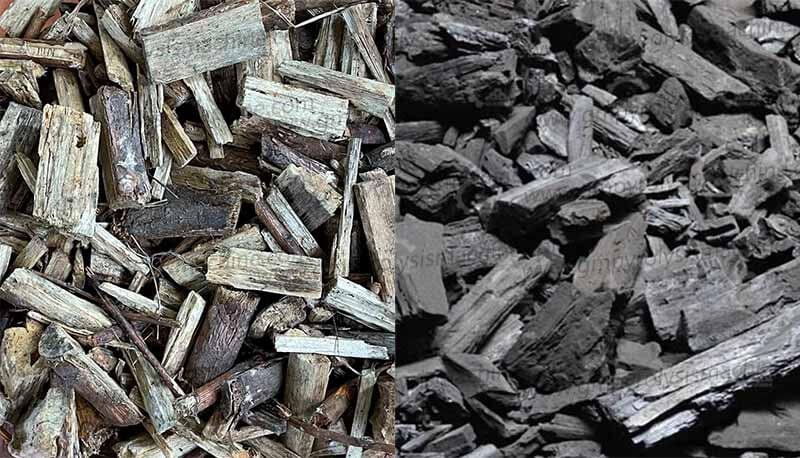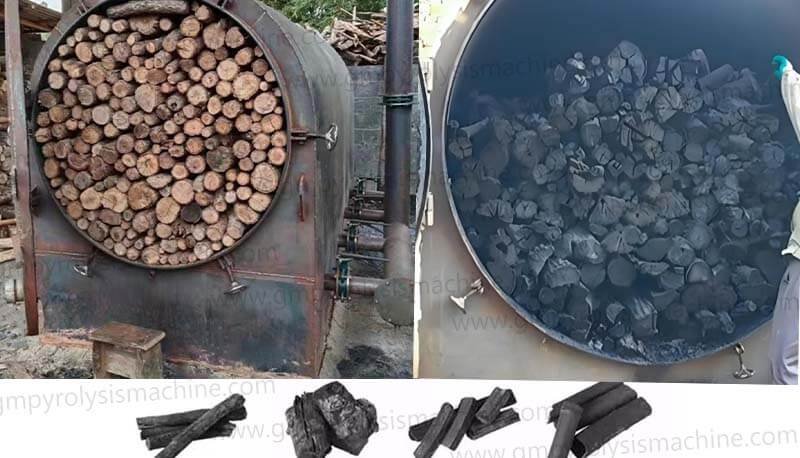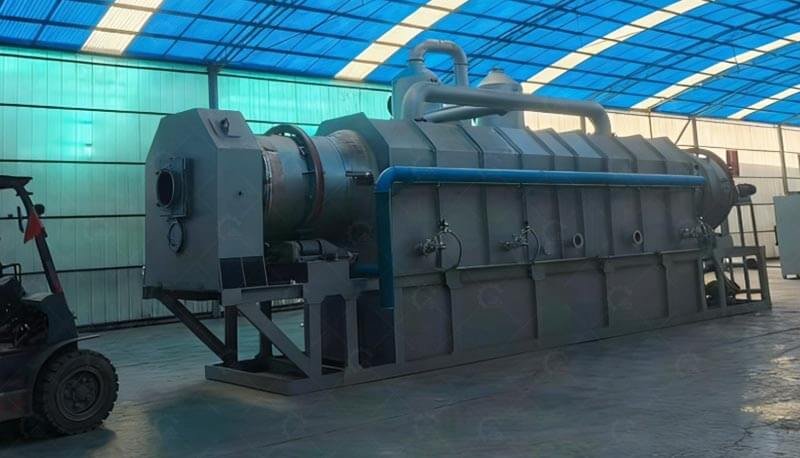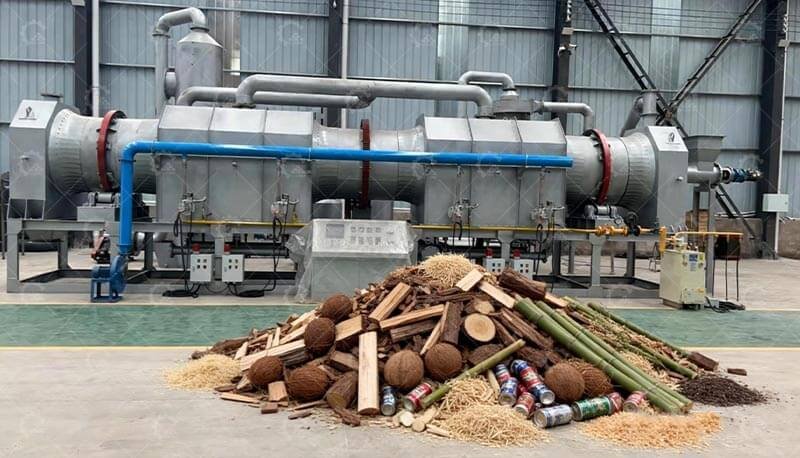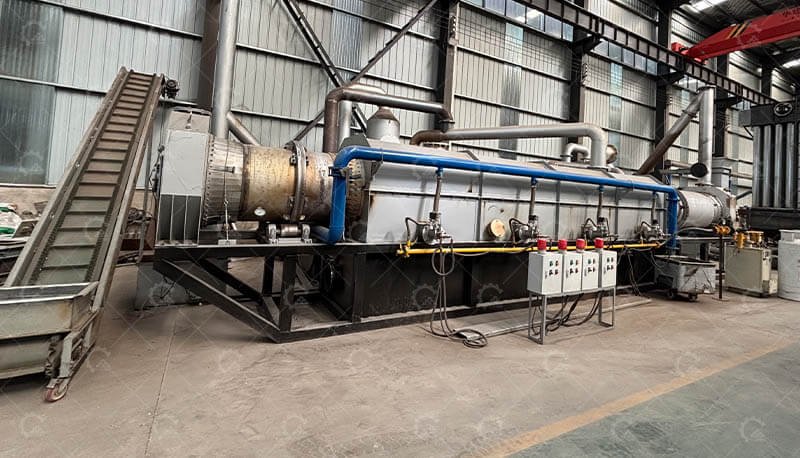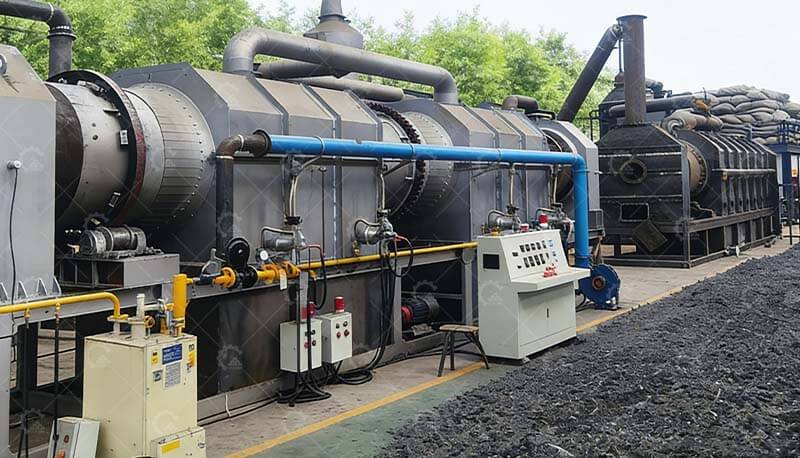Charcoal production is a time-tested process that transforms organic biomass into a high-energy fuel source. Whether you’re a startup or an established manufacturer, understanding the steps in charcoal production is critical to optimizing efficiency, quality, and profitability.
Step 1: Raw Material Selection and Preparation
The charcoal making process begins with selecting suitable biomass. Common feedstocks include:
Wood: Hardwoods like oak, maple, or bamboo (ideal for high-density charcoal).
Agricultural waste: Coconut shells, rice husks, or palm kernel shells.
Bamboo residues: Offcuts from furniture or construction.
Preparation steps:
1. Shredding: Raw materials are cut into 2–5 cm pieces for uniform carbonization.
2. Drying: Moisture content is reduced to 10–15% using rotary dryers or solar methods.
3. Sorting: Metal or non-combustible debris is removed to ensure purity.
Daily capacity: A medium-sized charcoal manufacturing plant can process 3–10 tons of raw material daily, depending on equipment scale.
Step 2: Carbonization – The Core of Charcoal Production
Carbonization involves heating biomass in an oxygen-limited environment to decompose organic matter. Modern charcoal production equipment uses two primary methods:
1. Batch Carbonization Furnace:
– Batch-operated brick or metal kilns.
– Temperature: 300–500°C for 8–24 hours.
– Yield: 25–30% charcoal.
2. Continuous Carbonization Furnaces:
– Fully automated systems with gas recycling.
– Temperature: 500–700°C for 2–4 hours.
– Yield: 35–40% charcoal (higher efficiency).
Key equipment: Pyrolysis reactors, gasifiers, and heat recovery systems.
Step 3: Cooling and Charcoal Collection
Post-carbonization, hot charcoal must be cooled rapidly to prevent combustion:
Water quenching: Charcoal is sprayed with water, reducing temperature to 50°C in 1–2 hours.
Gas cooling: Syngas byproducts are redirected to cool the charcoal indirectly.
The cooled charcoal is then sieved to remove fines and standardized into lumps, briquettes, or powder.
Step 4: Byproduct Recovery and Utilization
Advanced charcoal manufacturing equipment captures and repurposes byproducts:
Wood vinegar: A liquid byproduct used in agriculture as a pesticide or fertilizer.
Syngas: Combustible gas reused to fuel the carbonization furnace, cutting energy costs by 40–60%.
Step 5: Quality Control and Packaging
Final charcoal quality is tested for:
Fixed carbon content: 70–85% (higher grades fetch premium prices).
Ash content: Below 5% for clean-burning charcoal.
Calorific value: 7,000–8,500 kcal/kg.
Charcoal is packaged in moisture-proof bags or bulk containers for export.
Daily Processing Capacity and Output
A well-designed charcoal production plant can scale operations based on feedstock availability:
Small-scale units: 1–3 tons/day, yielding 300–900 kg of charcoal.
Industrial systems: 10–20 tons/day, producing 3–7 tons of charcoal.
For example, processing 5 tons of bamboo daily yields ~1.75 tons of bamboo charcoal and 1,000 liters of wood vinegar.
End Products and Market Applications
The charcoal manufacturing process generates versatile products:
1. Lump charcoal: Preferred for BBQ and metallurgy ($800–$1,200/ton).
2. Charcoal briquettes: Uniform shape for retail sales ($500–$700/ton).
3. Activated carbon: High-value material for water filtration ($2,000–$3,000/ton).
Key Equipment for Efficient Charcoal Production
Investing in the right charcoal production equipment is crucial:
Carbonization furnaces: Rotary, retort, or continuous designs.
Briquetting machines: Compress charcoal powder into uniform briquettes.
Emission control systems: Cyclones and scrubbers to meet environmental regulations.
Automated PLC-controlled systems reduce labor costs and ensure consistent output.
Factors Affecting Charcoal Production Plant Cost
The charcoal production plant cost depends on:
Capacity: A 5-ton/day plant costs $80,000–$150,000.
Automation: Fully automated lines increase upfront costs by 30% but reduce labor by 60%.
Certifications: ISO or CE compliance adds 10–15% to pricing but enhances marketability.
Mastering the steps in charcoal production enables businesses to convert low-value biomass into profitable, sustainable products. By optimizing raw material selection, carbonization technology, and quality control, manufacturers can achieve high yields and meet global demand for eco-friendly fuels. Partner with experienced charcoal production equipment suppliers to design a plant that aligns with your capacity and budgetary goals.

